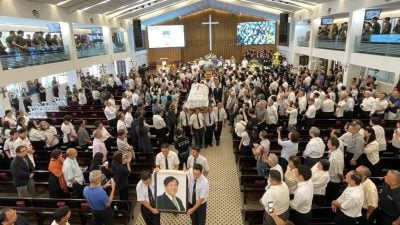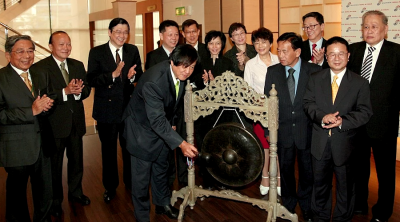Sin Chew Daily
Defense minister Ismail Sabri announced on Tuesday that the government would introduce the so-called domestic travel bubble initiative with effective from March 10, allowing people living in RMCO areas to travel across state borders to other RMCO areas. However, they can do so only by joining a group tour, and no stopovers are allowed in a CMCO state along the way.
At the same time, Langkawi has also be turned from a CMCO area into RMCO area on the same day to encourage tourism.
By right tourist industry operators should feel excited about this new plan, having been starved of business of one whole year.
As for international travels, according to tourism, arts and culture minster Nancy Shukri, we are prepared to discuss mutual visits between Malaysia and the "green countries" identified by WHO, as well as countries in Asean, Japan, China, south Korea and Taiwan. She says a precondition is that the coronavirus pandemic must come under control in these countries, or for individuals already inoculated and in possession of "vaccine passports". But so far we are still not there yet.
2020 was the worst ever year in the history of global tourism. The situation was not any better in this country. As such, any talk about economic growth prospect this year is at best only hypothetical.
According to preliminary estimates released by UNWTO on January 28, global tourism industry lost US$1.3 trillion last year due to the pandemic, with a 1.5% cut off the world's GDP. Tourism loss contributed 34.4% of the global economic loss of 4.5% last year, meaning a third of the global recession was contributed by the tourist industry alone.

2020 was supposed to be Visit Malaysia Year with an original target of 30 million foreign tourists. But thanks to the coronavirus, the industry lost over RM100 billion, a sharp 42% decline compared to a year earlier. In 2019, tourist receipts stood at RM240.2 billion, or about 15.9% of our GDP. The RM100 billion revenue loss last year made up almost 6.5% of the GDP, more than the country's actual GDP contraction for the whole year.
Due to the very high weightage of the tourist industry to the country's GDP, it is absolutely necessary for the government to prioritize the revival of the industry, but a prerequisite is that the pandemic must be suitably controlled and the vaccination goal achieved.
We can only talk about fully opening up the tourist sector if herd immunity is achieved. As for international travels, herd immunity must also be achieved first, or foreigners may just stay away from us.
The situation at this moment has somewhat improved with slowing daily new increases and falling active case numbers. Nevertheless, the inoculation rate is still quite low, with only 195,923 people, or 0.60% of the country's population, receiving their first jabs as of Tuesday night. Based on the target of 26.5 million immunized to achieve herd immunity, then only 0.74% have so far received their first jabs.
From the first jab administered on Feb 22, we have a daily average of 12,245 people vaccinated during the past 16 days. To immunize 80% of the population within one year, two jabs for each individual, then we will need a total of 53 million vaccine doses, and administer an average of 145,000 doses a day! But given the 12,245 doses administered a day, our progress is a pathetic 8.4% (12,245/145,000). This shows that we are seriously far behind schedule.
In neighboring Indonesia, some 4.26 million people have been vaccinated. Even Myanmar has inoculated more than 100,000 people. We shouldn't have done worse than these countries!
In China, 52.5 million people have been vaccinated, and the country officially rolled out its "international travel health certificate" on Monday. Currently many other countries around the world are actively implementing such health certificate systems so that travel bubbles can start functioning, for example Taiwan-Palau, and Israel-Cyprus-Greece. In the meantime, Thailand, South Korea and Singapore are also looking into this very proactively.
Over here in Malaysia, our tourism minster is prepared to negotiate travel bubbles with Asean countries as well as China, South Korea, Japan and Taiwan. Nevertheless, if we were to look at how well the virus is under control, progress of vaccination, the number of active cases and other parameters, we are actually far behind other countries.
If we are really serious about reviving the tourist industry, both the government and the public need to realize that we all must work together in unity for this to become a reality.
ADVERTISEMENT
ADVERTISEMENT


































